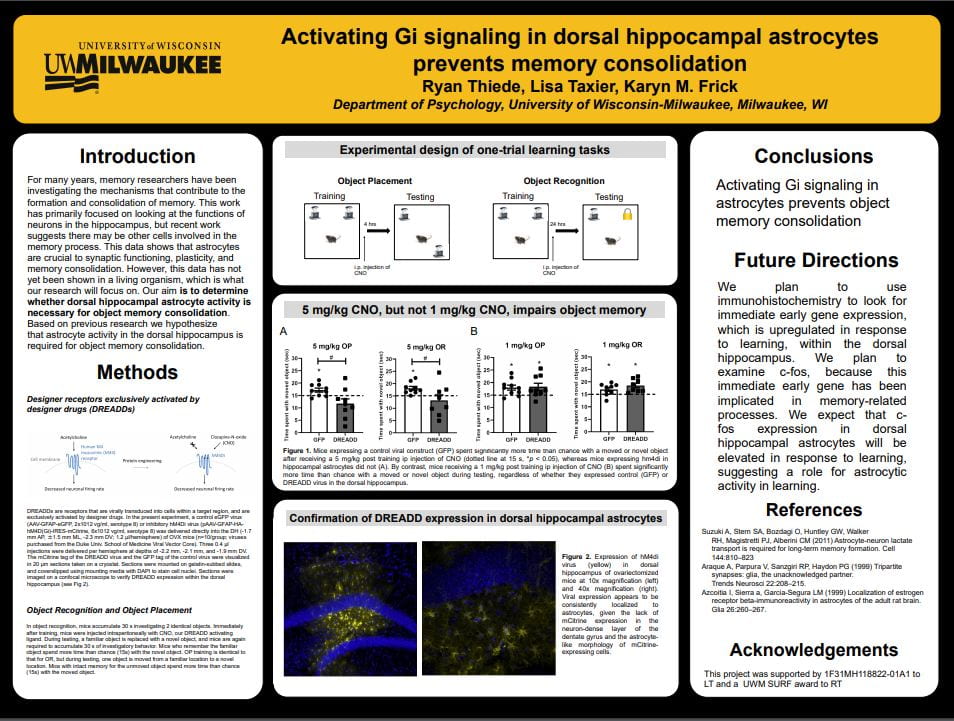Ryan Thiede, “Learning-Induced Changes in Astrocytic Immediate Early Gene Expression in the Dorsal Hippocampus”
Mentor: Karyn Frick, Psychology
Dementia is an ever-growing mental health problem that affects millions of people every year. Identifying ways in which to prevent and reduce memory loss may lead to novel treatments that could improve the quality of life for dementia patients and their families. Our long-term goal is to identify the neurobiological mechanisms of memory formation within the hippocampus, a brain region critical for memory processes whose function is significantly compromised in Alzheimer’s disease. The aim of the present study is to examine the role of astrocytes in the brain in memory formation. Despite the fact that they are the most abundant cell type in the brain, astrocytes are historically understudied with respect to memory consolidation compared with neurons. To determine the extent to which astrocytes are activated in response to learning, female mice were allowed to explore two novel objects in a large arena until they had accumulated 30 minutes of object exploration. Ninety minutes after object exposure, mice were anesthetized and perfused intracardially with 0.9% phosphate buffered saline followed by 4% paraformaldehyde in 0.1M phosphate buffer to exsanguinate and fix the brain tissue. Following perfusion, brains were extracted and 20µm slices were cut on a cryostat. Immunohistochemistry was then used to detect immediate early gene (IEG) expression, which is upregulated in response to learning, within the dorsal hippocampus. The IEG c-fos was examined because this IEG is activated by many forms of learning and memory. We expect that c-fos expression in dorsal hippocampal astrocytes will be elevated in response to object exploration, suggesting a role for astrocytic activity in learning.
Click the thumbnail below to open the full sized poster in a new tab.

Very interesting! “Zooming out” a notch for a more general audience might be advisable.